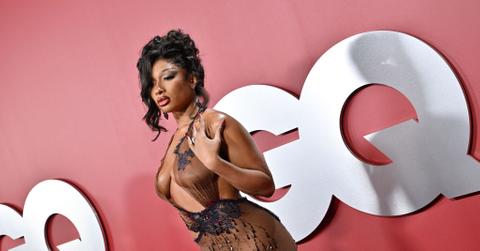
Addressing the Sexualization of Female Rappers: The Megan Thee Stallion Case
By Whitney CunninghamDec. 17 2023, Updated 3:55 p.m. ET
Even if you're not a huge hip-hop fan, you've more than likely heard about the trial involving rapper Megan Thee Stallion and R&B singer Tory Lanez stemming from a shooting incident in 2020. Lanez has since been convicted and sentenced to jail for shooting Megan Thee Stallion during an argument that took place after a night of partying. While lawyers were supposed to be focused on sifting through the evidence to find out how Megan ended up with bullet fragments in her foot that night, there was instead a narrative being pushed about her sexual history.
Fans questioned how any of that was relevant to the case at hand, but it's part of an age-old practice of reducing Black women to their bodies and sexuality.
The Sexualization of Black Women in Hip-Hop
Black women are constantly subjected to objectification and hypersexualization. This behavior is especially prevalent in the music industry, with hip-hop being one of the biggest culprits. Many fans of the genre have become desensitized to the lyrics and imagery that depict Black women as nothing more than sexual objects.
This not only perpetuates harmful stereotypes but also takes away from the humanity and achievements of these women. It seems like no matter how successful and groundbreaking women become, there's always pressure for them to conform to narrow expectations of femininity that center their sexuality over their artistry. While Megan Thee Stallion has rapped very openly about sex in hit songs like "W.A.P.," she is also a college-educated woman who gives back to her community.
Bringing up her sexual past in a trial about a shooting to somehow prove that she deserved it is misogyny at its finest.
Female Rappers vs. Male Rappers
For as far back as we can all remember, rap music has always had misogynistic tones and lyrics that glorify all types of debauchery. The '90s were full of gangster rappers like Tupac and Biggie, whose behavior led to their untimely demise. There were rappers like Uncle Luke who made extremely raunchy music and had even raunchier music videos to accompany it.
However, when people speak of male rappers, they are never entirely held accountable for the type of rhetoric that they spew into the community. They are not held to the standard of being role models to the youth. And even if they have said and done heinous things, they are allowed the opportunity to overcome that to be regarded as businessmen like 50 Cent. Female rappers are not given that same grace.
Female rappers like The City Girls, Cardi B, Sexyy Red, and Megan Thee Stallion are rarely allowed to escape the things they rap about. They are called derogatory names, and if they go through anything publicly, they are told they deserve it for not being traditional women. “I choose my own clothing," Megan wrote in an op-ed for The New York Times. "Let me repeat: I choose what I wear, not because I am trying to appeal to men, but because I am showing pride in my appearance, and a positive body image is central to who I am as a woman and a performer."
They are constantly reminded how they need to be a role model and that they're leading women astray. Telling women to seek men with means is nowhere near as harmful as glorifying selling drugs and killing each other, but somehow, one side gets a pass.
How Do We Combat This Issue?
The sexualization of Black women has been an ongoing issue in society. Hip-hop music has helped to propagate this image, perpetuating the harmful notion that the worth of a Black woman is solely based on her sexuality and looks. This mentality not only damages the self-esteem and mental health of Black women, but it also promotes misogyny and reinforces negative stereotypes about women. We need to recognize and challenge this culture of sexualization and strive towards creating a world where Black women are valued for their intelligence, creativity, and contributions to society.

